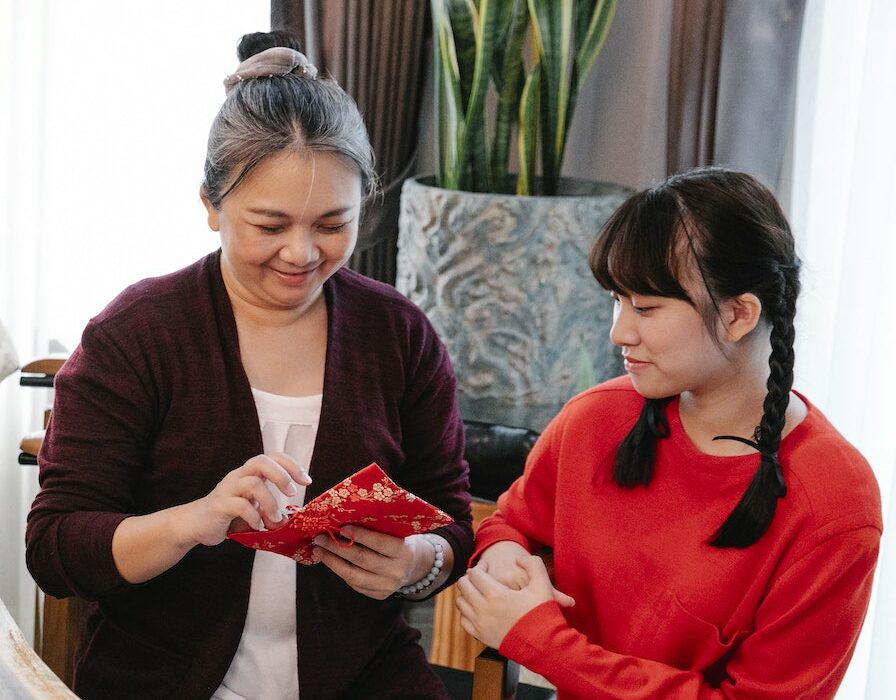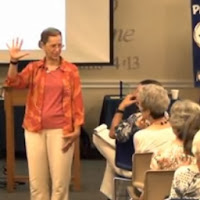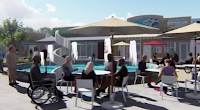It’s the feelings that matter in dementia. Memories fade but feelings remain. That’s why gifts usually matter.
Whether your Alzheimer’s loved one understands the gift, or even particularly cares about it in the later stages, is not really what counts.
It’s the feelings that matter. Your loved one with Alzheimer’s disease can sense your feelings and responds in kind.
Gift Ideas
So really, in a very deep sense, the gift you give to someone with Alzheimer’s is one that you give to yourself as well. A night out at a quiet restaurant, tickets for a happy movie, and at the earliest stages,
even a durable chess set are all great gifts.
Simple games can make engaging gifts, including back-to-basics like:
Electronics are sure-fire gifts. Easy-to-read
look good and help orient people with dementia.
Therapeutic lamps
and
Mood-lights
liven up living spaces, reduce agitation and boost mood.
A printer to which you can email photos
or an
digital-photo-frame to which family can email smartphone photos as fast as they can take them
makes sharing pictures easier than ever. These easy technologies take your pictures all day long and keep them on display. Generations stay together, while reducing distance and loneliness.
Amplified photo phones
keep the conversations going.
Wireless key finders also help locate phones or pets and even remote controls
, while special
elderly automobile cushions
and
Handy-Bars-for-Cars
help loved ones get around.
CDs or DVDs of your loved one’s favorite music are a sure-fire gift that is certain to raise spirits in almost any stage of Alzheimer’s. Whether it’s
Oldies,
classical music,
or whatever they enjoyed most when they were young, research has shown music tobe one of the best, simplest and most effective therapies for people with dementia.
Movies or
Broadway musicals
are wonderful, even in the middle to late stages.
,
or comforters
can provide ease and a sense of well-being. Special foods,
all kinds of entertaining books for seniors, as well as books rich in photos of nature or senior coloring books
(children and grand vistas are great!) and yes,
provide a reassuring feeling, too. Remember, the later the stage, the younger the functional and emotional level.
Getting Together
Preparing for family gatherings, parties and other events can be extremely stressful and expectations often need to be adjusted to meet the demands of the new reality each stage brings.
In the early stages, a person with Alzheimer’s disease can still help with preparing food (no fire, no knives), hanging baubles (try to avoid glass) and wrapping presents (avoid the scissors). It is very reassuring to have his or her favorite music on while doing this, or sing some of the “old songs” together.
As for the main event, loud noises, sudden movements, blinking lights and chaos are all major no-no’s that can confuse or even frighten someone with Alzheimer’s disease, even in the early stages, so it’s important to keep things light and easy. Safety and serenity are key.
Gifts for Caregivers
It’s always great to receive a gift, but for caregivers the experience is even more precious, since the giving is often going the other way, all day, every day.
Think “Afternoon at the Spa”,
aromatherapy shower gel
,
Gift Certificates for a good restaurant or a sweet dessert,
perhaps a soothing foot spa,
a “Respite Day” or simply a “Weekend Off”. (This is where friends or family become essential, so that someone else can do the caregiving for a while.) Free gifts often mean the most – a day of help with housework, a weekly cleaning assist, someone else to do the cooking – anything to lighten the load.
If your Alzheimer’s loved one is in an Assisted Living Facility (ALF) or Nursing Home (NH), it is equally important to remember the staff, from a practical as well as a ‘basic decency’ standpoint.
Who knows better how hard it is to care for a person with Alzheimer’s disease, than one who has had to do it?
It is this sense of gratitude and appreciation that is so important to thank the staff for caring, for the compassion and for having the strength to do what must be done in caring for a person with Alzheimer’s disease. Also, it is the staff that cares for the residents, so giving back what they give daily to your loved one isn’t just decent, it’s smart. Staff people remember those who remember them.
It is impossible to give 10-plus gifts to cover all the staff members, but it is possible to bake cookies, buy a cake, a few pizzas,
a box of chocolate
– anything that will show your appreciation for all their hard work. It doesn’t have to be expensive; it just has to be there.
Living in the Moment
The holidays are bittersweet when a family is struck by Alzheimer’s disease. It’s a time for caring and sharing and reflecting on the year that’s past and the year to come – and with Alzheimer’s, the future is tough to face. But there are some bright spots.
People with Alzheimer’s, more than anyone else know how to live in the moment. For just an hour, an afternoon or day, joining with your loved one in that moment can make for a very special holiday.
- Ann Julian




